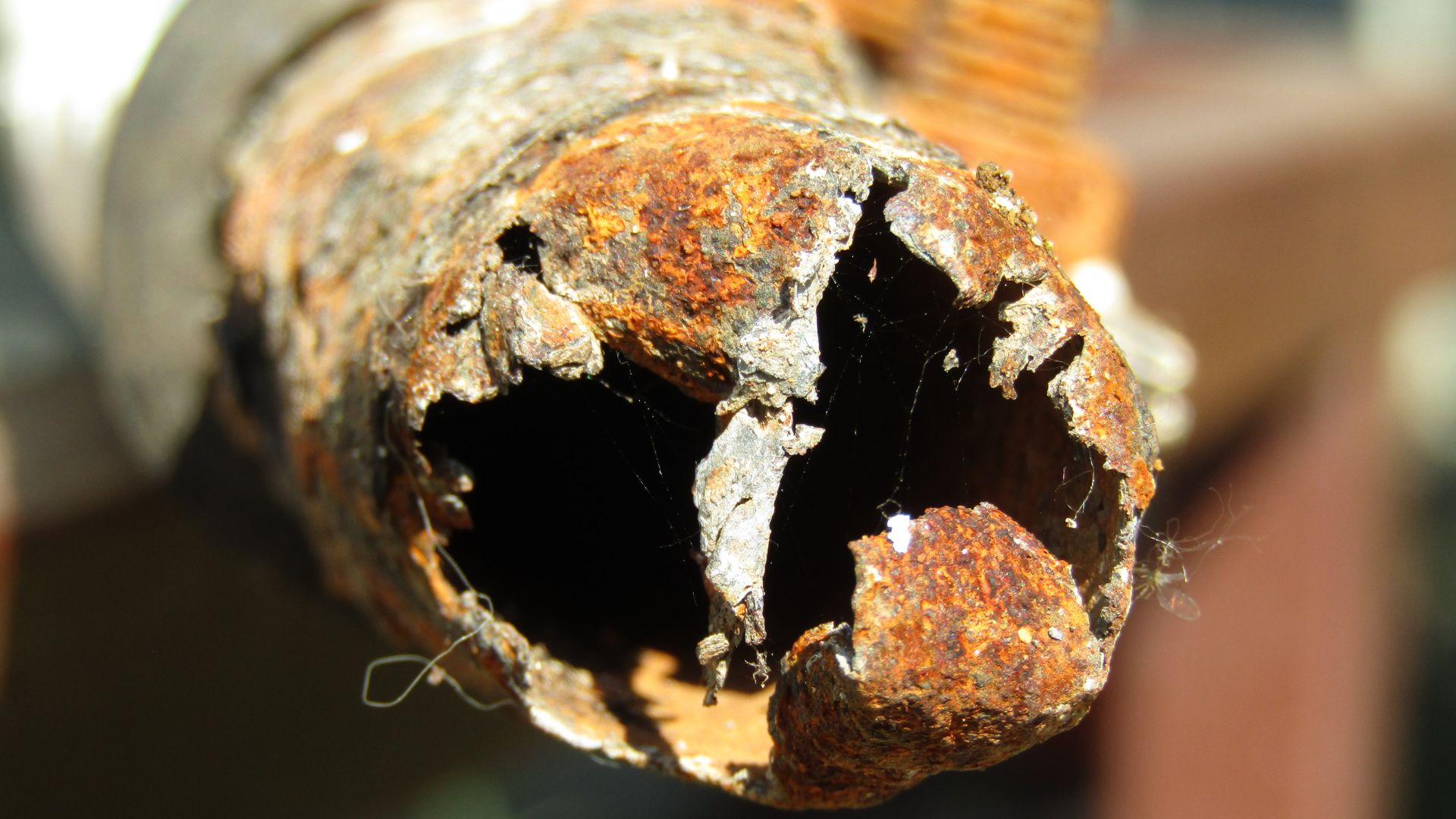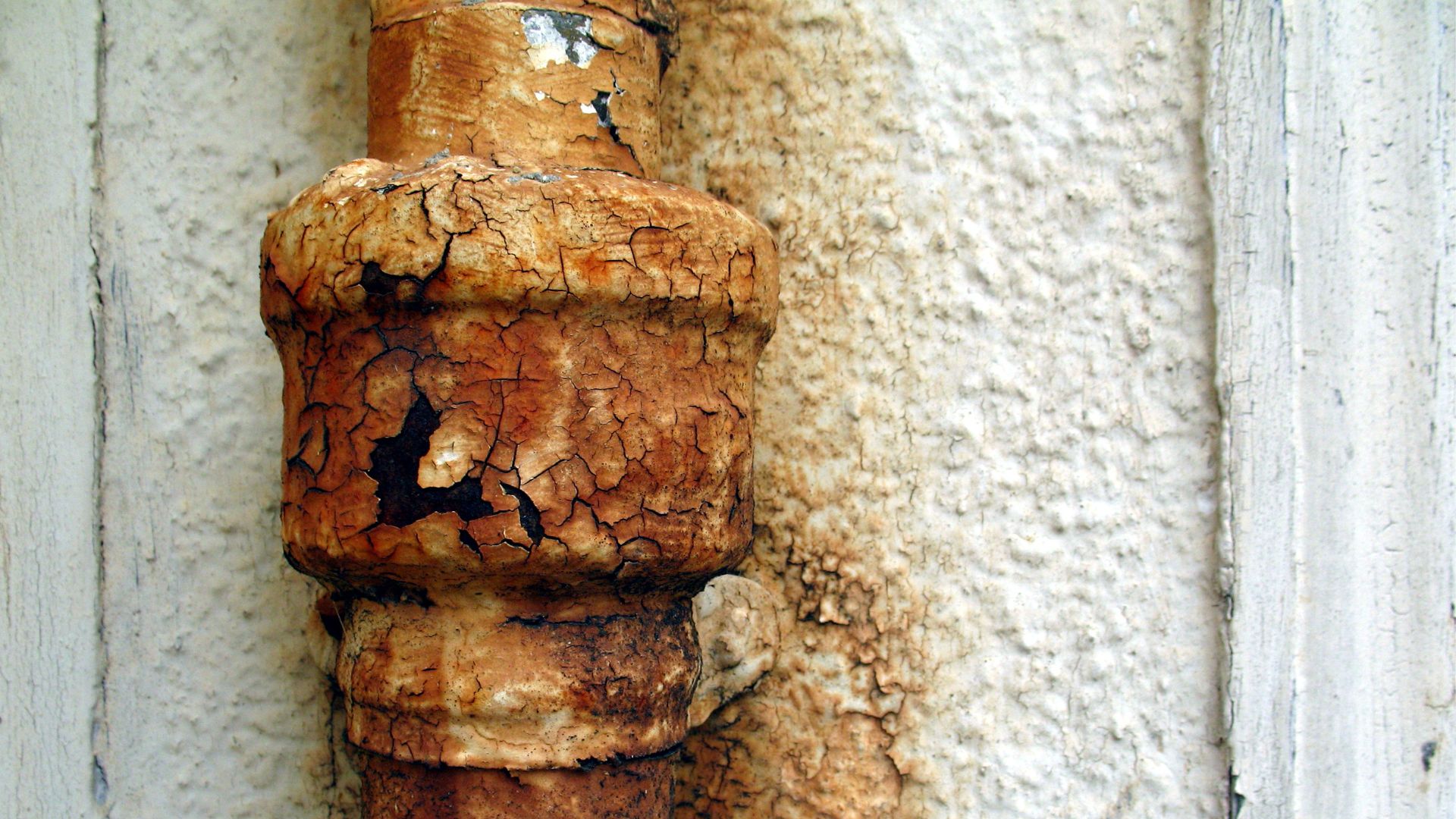Did you know corrosion accounts for an average of 4.35% of the global GDP, according to NACE International? This silent menace significantly threatens Australia’s gas infrastructure, leading to hazardous leaks and costly repairs. Addressing gas pipe corrosion is an economic necessity and a critical safety measure.
This blog delves into the common causes of corrosion and explores effective prevention strategies for safeguarding your home and community.
What is Gas Pipe Corrosion?
Gas pipe corrosion is the gradual degradation of metal pipes due to chemical reactions with their environment. This process weakens the pipes, making them susceptible to leaks. Corrosion occurs when metal reacts with moisture, air, or soil, leading to rust and deterioration.

The effects on pipes can be severe, compromising their structural integrity and increasing the risk of hazardous gas leaks. Such leaks pose safety risks, including potential explosions, and lead to costly repairs and replacements.
Maintaining gas pipes is crucial for preventing these dangers. Regular inspections and maintenance help detect early signs of corrosion, ensuring the safety and efficiency of gas delivery systems. Proactively managing corrosion can avoid unnecessary expenses and protect our homes and communities from potential hazards.
Common Causes of Gas Pipe Corrosion
To prevent gas pipe corrosion, it’s vital to grasp what causes it. Here are a few key factors that can lead to this problem.
Environmental Factors
Soil composition plays a significant role in corrosion. Soils rich in clay or with high salt content can accelerate the deterioration of pipes. Moisture levels are another critical factor; excessive moisture increases the likelihood of rust formation.
Additionally, temperature fluctuations cause pipes to expand and contract, leading to cracks and weakening over time.
Chemical Reactions
Chemical reactions between the gas and pipe materials can significantly impact corrosion rates. Gas impurities and pollutants can react with the metal, causing it to corrode faster.
External elements like acid rain or industrial pollutants can also contribute to these reactions, further degrading the pipes.
Material and Installation Issues
Selecting the right materials is crucial. Poor material choices, such as using metals that are not corrosion-resistant, can lead to faster deterioration.
Improper installation, including inadequate protective coatings or incorrect sealing, can exacerbate exposure to corrosive elements. Proper installation techniques and high-quality materials can help mitigate these risks.
Signs of Gas Pipe Corrosion

Identifying gas pipe corrosion early can prevent dangerous situations and costly repairs. Here are some key indicators to watch for:
Visual Indicators
Look for visible signs like rust, discolouration, or flaking on pipes. These symptoms indicate that the metal is breaking down and could lead to leaks. Regular check-ups can spot these warning signs early before they become bigger problems.
Performance Symptoms
Reduced gas flow is often caused by corrosion, as the buildup inside pipes can restrict gas movement. Additionally, unusual odours, particularly the smell of gas, indicate potential leaks caused by corrosion.
If you notice these symptoms, addressing them promptly is crucial to ensure safety and maintain efficient gas delivery.
Effective Prevention Strategies
Preventing gas pipe corrosion is essential for safety and cost-efficiency. Here are some effective strategies:
Material Selection
Choosing corrosion-resistant materials is crucial for new installations or replacements. Opt for pipes made from stainless steel, copper, or plastic composites, which are less corrosion-resistant. These materials provide a longer lifespan and reduce the risk of leaks and deterioration.
Protective Coatings
Applying protective coatings and wraps is an effective way to shield pipes from corrosive elements. Coatings are a barrier, preventing moisture and pollutants from reaching the metal surface.
Wraps can offer additional protection, especially in areas with high soil salinity or moisture. Regular maintenance of these coatings ensures their continued effectiveness.
Regular Inspections
Routine inspections by professionals are vital for detecting early signs of corrosion. Scheduled assessments help identify potential issues before they become severe, allowing for timely interventions. Inspections should include visual checks and advanced techniques like ultrasonic testing to accurately assess the pipe’s condition.
Cathodic Protection
Cathodic protection is an electrical method for preventing corrosion. It effectively neutralises corrosive reactions by applying a small electrical current to the pipe.
This technique especially benefits underground pipes, where environmental factors can accelerate corrosion. Implementing cathodic protection can significantly extend the life of gas pipes and is a proven method in various industries.
Maintenance Tips for Longevity
Regular maintenance is key to ensuring the longevity of your gas pipes. Here are some simple tips homeowners can follow:
Routine Maintenance
- Visual Inspections: Regularly check for visible signs of rust, discolouration, or flaking. Catching these early can prevent serious issues.
- Keep Pipes Dry: Ensure areas around pipes are well-drained to minimise moisture exposure, which can accelerate corrosion.
- Clear Vegetation: Keep plants and roots away from gas pipes to prevent damage and maintain inspection accessibility.
- Check for Leaks: Be alert for unusual gas odours that indicate leaks. If you smell gas, contact a professional immediately.
- Monitor Gas Pressure: Keep an eye on gas pressure and flow. Any reduction might signal a problem that needs professional attention.
The Role of Professional Services
Engaging professional services is crucial for maintaining the integrity of your gas pipes.
Expert Assessment
Professionals provide accurate assessments, which are essential for detecting and preventing corrosion. They use specialised tools and techniques, such as ultrasonic testing and infrared thermography, to identify issues that aren’t visible to the naked eye. Their expertise ensures that any potential problems are addressed before they become hazardous.
Advanced Solutions
Professionals offer advanced solutions that go beyond basic maintenance. Techniques like cathodic protection and specialised coatings are available, which the average homeowner cannot implement. These solutions provide enhanced protection against corrosion, extending the lifespan of gas pipes and ensuring safety.
Utilising professional services ensures comprehensive care for your gas infrastructure, keeping your home safe and efficient.
Trust the Experts at Fixed Today
Regarding gas pipe repair, trust the experts at Fixed Today. Our team is dedicated to providing reliable, high-quality services to keep your home safe and efficient. With years of experience, we specialise in detecting and preventing corrosion, ensuring your gas systems are in top condition.
Our commitment to safety and quality means you can have peace of mind knowing your home is in expert hands. We use the latest technology and techniques to deliver effective solutions tailored to your needs.
Don’t wait for problems to arise— reach out to us for inspections or consultations. Let our skilled professionals assess your gas pipes and recommend the best course of action.
Take proactive steps to protect your gas systems. Prevention and professional assistance are key to ensuring safety and efficiency. Trust Fixed Today to help you maintain a secure and reliable gas supply.














